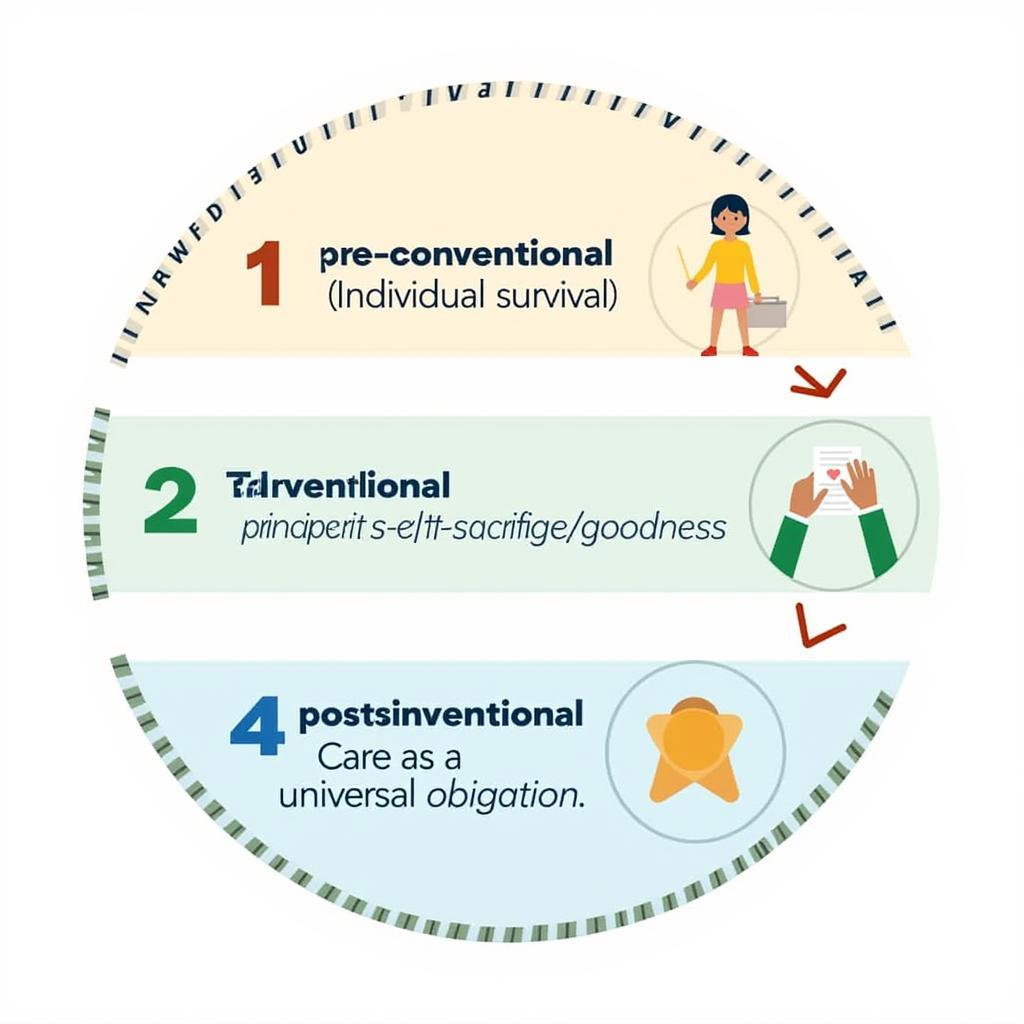Carol Gilligan’s research on moral development revolutionized the field of psychology by challenging established theories and offering a fresh perspective on how moral reasoning evolves. Her work, particularly her groundbreaking book In a Different Voice, highlighted the gendered differences in moral development, arguing that traditional models, primarily based on male subjects, failed to capture the nuanced moral perspectives of women.
Understanding Gilligan’s Challenge to Kohlberg’s Theory
Gilligan’s work directly challenged the prevailing theory of moral development proposed by Lawrence Kohlberg. Kohlberg’s stage theory posited a universal, hierarchical progression of moral reasoning, culminating in a principled, justice-oriented approach. However, Gilligan argued that this model, derived from research primarily on male subjects, presented a biased view of morality, overlooking the care-based ethical framework often employed by women.
A Different Voice: The Ethics of Care
Gilligan proposed that women’s moral development often follows a different path, emphasizing relationships, empathy, and responsibility to others. This “ethics of care,” as she termed it, focuses on maintaining connections and minimizing harm within interpersonal relationships, contrasting with Kohlberg’s justice-oriented approach which prioritizes abstract principles and individual rights. This isn’t to say men don’t exhibit care-based morality or women justice-based, but that Gilligan’s research suggested a tendency towards different perspectives.
 Carol Gilligan's Ethics of Care Model
Carol Gilligan's Ethics of Care Model
The Three Levels of Gilligan’s Ethics of Care
Gilligan outlined three levels of moral development within the ethics of care framework: pre-conventional, conventional, and post-conventional. At the pre-conventional level, the focus is on individual survival and self-interest. The conventional level is marked by a shift towards self-sacrifice and prioritizing the needs of others, often at the expense of one’s own. Finally, the post-conventional level integrates care for self and others, recognizing the interconnectedness of relationships and striving for a balance between individual needs and the needs of those around them.
Applying Gilligan’s Theory in Real-World Contexts
Gilligan’s research has had a profound impact on various fields, including education, psychology, and ethics. Her work has illuminated the importance of considering diverse perspectives in moral decision-making and has provided a framework for understanding the complex interplay between individual needs and social responsibility.
Criticisms and Continued Relevance of Gilligan’s Work
While Gilligan’s research has been highly influential, it has also faced criticism. Some scholars have questioned the extent to which gender truly dictates moral orientation, arguing that both men and women utilize both care and justice perspectives. However, even with these critiques, Gilligan’s work remains essential for understanding the diversity of moral reasoning and the importance of inclusivity in psychological research.
What is the main difference between Gilligan and Kohlberg’s theories?
Gilligan emphasizes care and relationships, while Kohlberg focuses on justice and individual rights.
How does Gilligan’s work apply to education?
Gilligan’s work encourages educators to foster empathy and create learning environments that value cooperation and interconnectedness.
Conclusion
Carol Gilligan’s research on moral development, with its focus on the ethics of care, provides a valuable alternative to traditional justice-based models. Her work has significantly expanded our understanding of moral reasoning and continues to be relevant in contemporary discussions of ethics, gender, and human development.
FAQ
- What is the central argument of Carol Gilligan’s In a Different Voice?
- How did Gilligan’s work challenge Lawrence Kohlberg’s theory?
- What are the three levels of Gilligan’s ethics of care?
- What are some criticisms of Gilligan’s research?
- How has Gilligan’s work impacted the field of psychology?
- What is the difference between care-based and justice-based morality?
- How can Gilligan’s theory be applied in everyday life?
Need support? Contact us 24/7: Phone: 0904826292, Email: research@gmail.com or visit us at No. 31, Alley 142/7, P. Phú Viên, Bồ Đề, Long Biên, Hà Nội, Việt Nam.
For further exploration on moral development and related topics, consider visiting our other website resources on [link to other related articles or pages]. We also recommend reading [suggest further reading materials or related books].